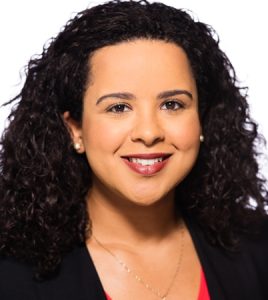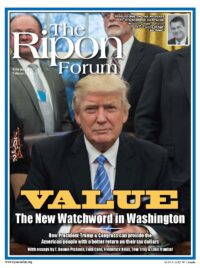
President Obama spent the last two years of his administration attempting to convince the American people that a new course for Cuba policy was in order. In spite of the Cuban government’s continued crackdowns against peaceful dissidents and hostility against the United States interests, he argued that it was time for America — not Cuba — to change its behavior. That is exactly what President Obama did. Via executive orders and without significant congressional support, his administration embarked on a new policy aimed at legitimizing the Castro regime.
From lobbying Congress to lift the embargo to increasing commercial opportunities for the Castro regime, the Obama Administration’s Cuba policy overwhelmingly benefited the Cuban government at the expense of the Cuban people. Arguably, it was designed that way from the beginning. Indeed, President Obama’s announcement on December 17, 2014, made no mention of tens of thousands of dissidents imprisoned, the political opponents murdered, or the catastrophic repression of the past half century.
Diplomacy is dependent on the right words, and the immediate results of Obama’s words were the clear impression of his capitulation. While Cuba received the diplomatic recognition, the promise to be removed from the State Sponsor of Terrorism list, the promise for increased commercial opportunities, and the return of their three convicted spies, the U.S. was left empty-handed.
America got nothing in return for its decision to normalize relations with Cuba, and the human rights situation on the island has not improved.
Proponents of the Obama Cuba policy point to the increasing numbers of American visitors and his three-day trip to the island as markers of success. While tourists sipping mojitos and staged photo ops may make for good headlines, it makes for terrible policy. Despite the promises of change, the Cuban government has not loosened its grip on power. In 2016, nearly 10,000 politically motivated arrests occurred. Nearly 500 alone occurred during the 72 hours that Obama and his family spent on the island. A few of those arrested even had appointments to meet with the American President. Religious persecution also increased tenfold from 2014 to 2015, going from 220 cases to 2,300 particular violations occurring. In the meantime, the concessions for Havana kept churning out of Washington over the past two years.
A well-funded lobbying campaign of corporate interests has supported these efforts. The agriculture lobby has been particularly keen on seeing the embargo lifted so they can secure financing for their exports. What they fail to mention is Cuba’s long history of failing to repay its debts. Despite being close Cold War allies, Russia was forced to waive over $35 billion of Cuba’s debt. Mexico waived almost $500 million, and Cuba still owes the Paris Club $15 billion. This does not include the close to $8 billion Americans are owed as part of the 5,913 claims certified by the Department of Justice. Since the Trade Sanctions Reform and Export Enhancement Act was approved in 2000, American businesses have been able to sell agricultural products to Cuba as long as they are paid for with cash. Any reasonable person can see the logic behind requiring cash upfront from a country that is unwilling to pay its debts.
When looking at the future of our Cuba policy, timing is everything, Cuban leadership is physically fragile. Nearly three months after the death of Fidel Castro, questions are increasing about the future of Cuba after 85-year old Raul Castro steps down in early 2018. A power struggle is occurring within the incoming leadership, and it is unknown as to who will take over.
The Cuban government has not improved its behavior towards the United States either.
President Donald Trump’s position on Cuba is quite clear. In November, he said “If Cuba is unwilling to make a better deal for the Cuban people, the Cuban/American people and the U.S. as a whole, I will terminate the deal.” His Secretary of State, Rex Tillerson, also promised to “press Cuba to meet its pledge to become more democratic and consider placing conditions on trade or travel policies to motivate the release of political prisoners.”
Needless to say, the leverage is fully on the side of the Trump Administration. It must capitalize on the momentum and the Cuban government’s need for continued relations with the U.S. Cuba’s sole benefactor, Venezuela, can barely afford to feed its people, let alone continue pumping oil money onto the island. President Trump should start by reverting regulations that overstretched the law. Low-hanging fruit in this regard are regulations that allowed U.S. companies to override the law and go into business with the Cuban government. He should rescind the regulations allowing for licensing deals, financing, and banking transactions with state and military entities. There are specific criteria governing the nature of our relationship with Cuba, and we must comply with those statutory requirements. The executive orders and directives issued by former President Obama are inconsistent with U.S. law.
America got nothing in return for its decision to normalize relations with Cuba, and the human rights situation on the island has not improved. The Cuban government has not improved its behavior towards the United States either. We must pursue a Cuba policy that enables and fosters a democratic transition and ends the rule of the Castro regime. There are few things more “America First” than fixing what Obama broke in Cuba.
Specializing in Latin American issues, Ana Quintana is a policy analyst in The Heritage Foundation’s Allison Center for Foreign Policy.




